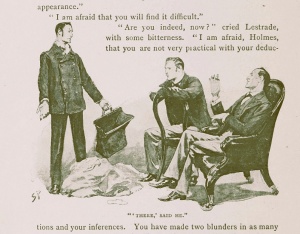
Photo by Ian Schneider on Unsplash
Self-promotion is self-care. Getting a better job so you don’t have to work as hard, getting your books seen, finding the best fit for you by letting those around you know you are looking for a better fit. Whether for day job or the write job, self-promotion is necessary.
I know we all be taught “pride goeth before the fall” – but it is actually “an haughty spirit before a fall”. It isn’t pride/satisfaction in a job well done, or letting people know “we did this” that is the road to destruction, but rubbing it in, immersing yourself in raising yourself over others and not seeing the worth in them as well as yourself. Raise up others, raise up yourself.
As we enter the time both of seasonal depression and of the winter holiday gift-giving season, I thought a little focus on self-promotion is in order. 25% of books are bought during the winter holiday season in the US of A (https://publishingperspectives.com/2020/11/npd-one-in-four-books-is-purchased-in-the-usa-during-the-holidays-covid19/#:~:text=Just%20to%20clarify%20the,of%20its%20annual%20print%20sales.). If you are a writer, October is the beginning of SELL-season. If you are a day-job worker, well, the summer graduates job hunting is done, the high school and college interns are settled, and the HR departments need to fill in slots left by parents who thought they could work and have the kids be in school at the same time and discovered otherwise.
So here is the Exercises for this month:
- If you are impacted by seasonal depression (and, be truthful to yourself, the answer is yes, you are … everyone is), do one of both of the following for your house. (a) Replace any and all burnt out light bulbs. Light up the house! (b) Buy one new lamp to put in your work area or reading area or somewhere shadows bring in the gloom.
- For the day-job, do one of the following: (a) brush off the resumee, clean it up – what have you been doing new on the job? what non-profit work have you done? Just give it a good scrub – but the short one to send into places and the long-time tracking so if you pivot your job, you have things to add. (b) If you like the company you work for, go hang out a moment with HR and talk about what you would like to do. See what other opportunities are there and if there is mentoring or training available. Make yourself attractive. (c) If you need to stretch your wings, send out a couple-few resumees. See if there are any bites. Take three nights and send out one a night.
- For the WRITING EXERCISE, for three nights this month and three nights in November, do self-promotion of your works on the social media platform(s) you use – facebook, blog, youtube, instagram, tik-tok, etc. Let people know where to find your stuff – short stories, novellas, art, whatever you have created.
Comment below where you self-promoted and what you marketed.
My attempt
I let a lot of things slide for a long time during COVID, but I’ve been kicking things back in gear, posting in the blog and on my Facebook page, as well as participating in some flash writing for a facebook group.
And don’t forget Honestly is still out there on Amazon to purchase or reading through Kindle Unlimited.



